A dive incident’s psychological aftermath.

THE DIVER
The diver was a 48-year-old male with four years of diving experience and 10 dives in the previous month. His medical history included hypertension and gastroesophageal reflux disease (GERD), which were controlled by medications. He used a prescription sleeping pill as needed.
THE INCIDENT
The diver was on a trip to a popular Hawaiian island. About 10 minutes into his first dive he had a regulator failure in which his mouthpiece came apart from his second stage. He thought the second stage was still in his mouth – though only the mouthpiece remained – so when he realised he couldn’t breathe he assumed the first stage had malfunctioned. He had just finished exhaling and was ready to take another breath. He began to panic because he did not think anyone was close enough to share air with him, and he found himself fighting the temptation to inhale water. He was without air for about 25 seconds before he remembered he had a spare air cylinder. He took two or three breaths from it before he was able to reach his buddy’s spare second stage.
The diver had just had his regulator serviced, and this was his first dive with it since then. He was fortunate to have purchased the spare air a year earlier; things could have been much worse. He was an emergency-room physician and knew the consequences of being unprepared.
THE COMPLICATIONS
The diver was “shell-shocked after the event and since the event” as he dealt with the aftereffects. He had trouble sleeping due to nightmares and had flashbacks of running out of air.
DISCUSSION
هذه القصة مأخوذة من طبعة Issue 02-2017 (108) من Scuba Diver.
ابدأ النسخة التجريبية المجانية من Magzter GOLD لمدة 7 أيام للوصول إلى آلاف القصص المتميزة المنسقة وأكثر من 9,000 مجلة وصحيفة.
بالفعل مشترك ? تسجيل الدخول
هذه القصة مأخوذة من طبعة Issue 02-2017 (108) من Scuba Diver.
ابدأ النسخة التجريبية المجانية من Magzter GOLD لمدة 7 أيام للوصول إلى آلاف القصص المتميزة المنسقة وأكثر من 9,000 مجلة وصحيفة.
بالفعل مشترك? تسجيل الدخول
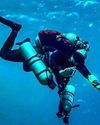
The Making Of A World Record-Breaking Diver
Descending more than 300 metres into the depths of the ocean may sound like a daunting prospect to even the most seasoned diver. But to one man, it was just another a challenge that he set for himself to see how far he was able to push the envelope.
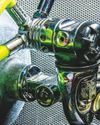
Risk Mitigation: Hose Failure
An unexpected outcome
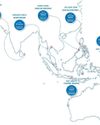
Top 10 Wrecks Of Asia-Pacific
We present a curated list of the top 10 most famous wrecks found in the Asia-Pacific region, listed in no particular order
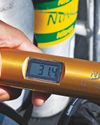
From The Medical Line: Diving After DCS
DAN medical information specaialists and researchers answer your dive medicine questions

Cave Exploration: Beginning With The End In Mind
Building complex adventures on simple skills
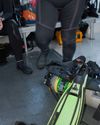
Dive Slate: Stay Safe On Board
When preparing for a dive, safety is at the top of the list – checking gear, learning potential site hazards and discussing procedures with your divemaster or buddy.

101 Tips On Becoming A Better Tek Diver
Technical diving takes divers beyond the typical recreational scuba diving limits, opening up many new and exciting possibilities.
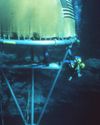
TECHNICAL DIVING TIMELINE (1660–1999)
It’s fair to say that the emergence of “technical diving” in the late 1980s, that is, the introduction of mixed gas technology, and later mixed gas rebreathers to the sport diving community, represented the culmination of hundreds of years of scientific discovery and technological development.

FLYING AFTER DIVING
From the Safety Stop

DIAGNOSING DECOMPRESSION ILLNESS
Incident Insight